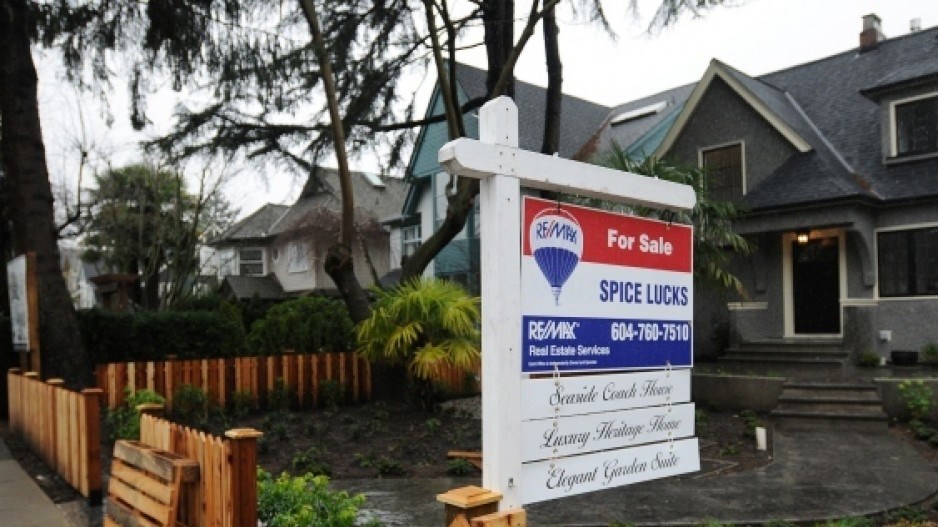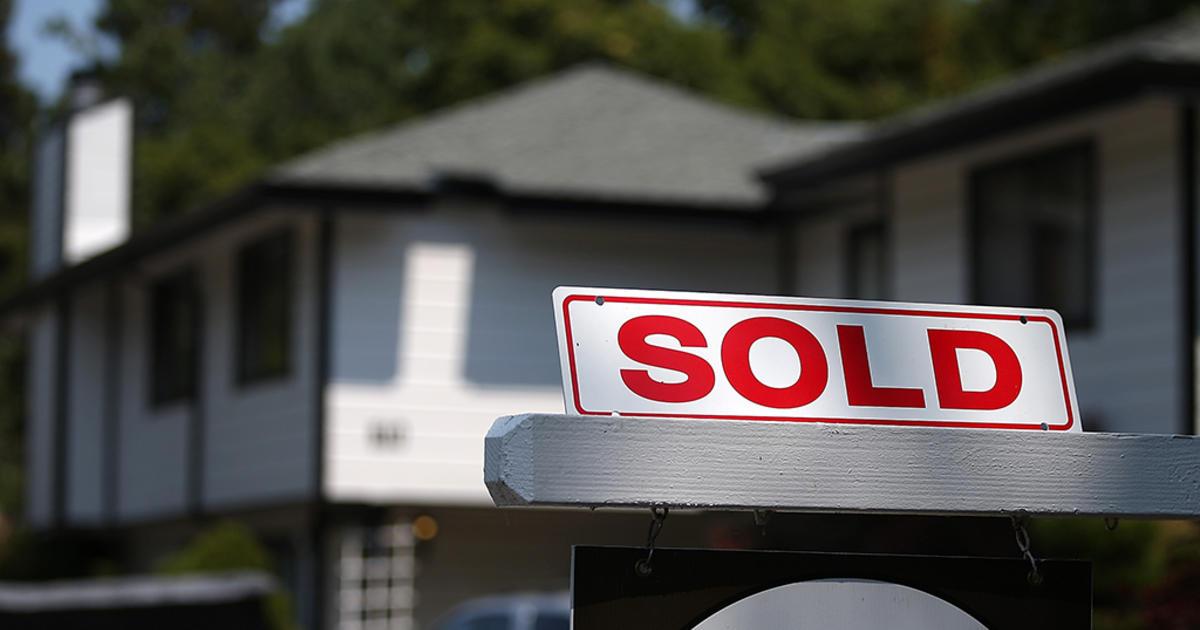Real eState
Vancouver real estate gains lag North American markets – Delta-Optimist


Greater Vancouver’s home price gains during the pandemic have lagged behind most other Canadian jurisdictions as well as those in the United States, in stark contrast with the region’s unprecedented increases in the mid-2010s, when the provincial government intervened on foreign demand.
“It’s a different ballgame,” said Tom Davidoff, associate professor and director of the Centre for Urban Economics and Real Estate at the University of British Columbia.
“This is enhanced affordability for locals pushing up prices, as opposed to diminished affordability for locals, full stop, due to outside pressure.”
This time around, local residents – seen as the primary driver of the housing boom – have been able to access a greater pool of money with their relatively stagnant wages due to lower interest rates and more accessible bank credit. Adding to the housing froth has been heightened demand for suburban properties with more living space due to the COVID-19 pandemic, Davidoff says.
But these factors are being witnessed across North America.
Canada’s home prices have jumped 17.3%, whereas Greater Vancouver’s have risen just 6.8% between February 2020 and February 2021, according to the Canadian Real Estate Association. U.S. house prices rose 10.8% from December 2019 to December 2020, according to the Federal Housing Finance Agency (FHFA) House Price Index.
Despite the continental surge, some Vancouver-based media commentary has asked, “Where is the outrage?” now, in comparison with the significant political pressure applied on the B.C. government in 2017, when housing prices rose 48.5% over the prior three years, according to the Real Estate Board of Greater Vancouver (REBGV).
Then, foreign ownership – and money derived from foreign earnings – was perceived as a unique factor further disassociating local incomes (residents) from local housing prices in Vancouver.
Now, foreign purchases are down significantly in B.C. and immigration has vanished.
“The outrage was, you know, people who want to get into the market can’t, and renters are paying more. This time, it’s different, because the reason prices have escalated, in part, is because of enhanced affordability through the mortgage market,” said Davidoff.
“So instead of another group crowding out local demand, which was part of what was happening in 2016 – you know, how much of a part is controversial – but now, it’s pretty clear, it’s that people have more ability to pay,” he added.
People have more ability to pay because Bank of Canada (BOC) interest rates are at an all-time low of 0.25%. Furthermore, BOC is buying government bonds (debt) from financial institutions, allowing them to lend more freely and at historically low interest rates.
This process, called quantitative easing, “encourages households and businesses to borrow, spend and invest,” states BOC. “For example: We can buy five-year government bonds, which will lower their yield. This would be reflected in lower interest rates on five-year fixed-rate mortgages, making it cheaper to borrow to buy a house.”
The BOC has indicated low rates are here for the near term, at least until 2023.
Davidoff elaborated that suburban housing markets, such as in the Fraser Valley, have typically been cheaper as people factor in higher transportation costs. But buyers appear to be betting that working from home could become permanent.
“I think it’s true that the virus has made people want more space. Out in the suburbs, there’s more space, which is what you want. And the issue of transportation has been diminished,” said Davidoff.
Urban planner Andy Yan says outrage over housing still exists but “it’s a different type of outrage if you’re totally locked out of ownership, as opposed to moving on up.”
Yan, director of Simon Fraser University’s City Program, suggests people are leaving their condos and paying more for the suburbs.
Although Vancouver’s overall price change is 6.8%, detached homes are up 13.7%, townhouses are up 7.2% and apartments are up only 2.5%, according to the REBGV. However, the Fraser Valley Real Estate Board reports 25.3% price gains in all housing forms since February 2020.
“I think there is outrage. But it just depends on who you are,” said Yan, who has been criticized for his 2015 report suggesting overseas Chinese buyers fuelled the remarkable 2014-17 gains.
“My point wasn’t only just foreign money. But it was foreign money with cheap money, right? Now we have a scenario where cheap money completely takes over the environment,” said Yan.
Another difference between then and now, said Davidoff, is how rents have remained the same in Vancouver, due, in part, to government intervention (rent freezes through to December 2021). And so, a significant population is not faced with higher housing costs during the pandemic.
Yan said it is those renters who likely have had their incomes “vaporized” due to the pandemic.
“If you look at the core of unaffordability, it’s both very high housing prices with relatively low, very, very low paying jobs,” said Yan.
Both Yan and Davidoff suggest housing prices are now at a level of risk not seen before, should interest rates rise and transportation demands return to the pre-pandemic era.
The total proportion of Metro Vancouver residential properties owned by non-residents in 2018 reached 4.9% while “some non-resident participation” in properties amounted to 7.6%, according to the Canadian Mortgage and Housing Corporation (CMHC). International students who file an income tax return are considered residents by CMHC. Last year, the CMHC reported these figures have remained the same.
B.C. introduced a foreign homebuyers tax in August 2016 and a so-called “speculation and vacancy tax” in 2018. Stricter mortgage requirements (“stress tests”) were also applied then by the CMHC, leading to house prices dropping in Vancouver in 2019.
Cracking down on potential crime and tax avoidance/evasion has also been an issue in Vancouver real estate. The B.C. government is conducting a public inquiry into money laundering that is to look at the regulatory regime in real estate. And between 2015 and 2020, a special Canada Revenue Agency audit program has issued $729.1 million of tax reassessments linked to Greater Vancouver real estate.
gwood@glaciermedia.ca
Real eState
Real Estate Stocks Fall As Mortgage Rates Rise To 4-Month Highs: 'Inflation Is Proving Tougher To Bring D – Benzinga


Real estate stocks slid at Wednesday’s market open, weighed down by the latest disappointing data on housing starts and a spike in mortgage rates, darkening the outlook for the sector.
By 9:00 a.m. EST, the Real Estate Select Sector SPDR Fund XLRE had dropped by 0.3%. This marked its fourth consecutive day of losses and set a course for its lowest close since the end of November 2023.
The fund has also slipped below its 200-day moving average, a critical long-term benchmark, signaling that investor sentiment has turned negative.
The average interest rate for 30-year fixed-rate mortgages with loan balances up to $766,550 climbed by 12 basis points to 7.13% for the week ending Apr. 12, 2024, according to the latest figures from the Mortgage Bankers Association. This rate is the highest recorded since early December.
On Wednesday, the yield on a 30-year Treasury bond, a key benchmark for long-term mortgage rates, traded at 4.75%, at the highest since mid-November 2023, as Fed Chair Powell admitted that there has been a lack of progress in the disinflation trend.
Chart: Real Estate Stocks Fall Below Key Long-Term Moving Average As Inflation Bites Again
Weaknesses In Multifamily Segment Continue
Joel Kan, MBA’s Vice President and Deputy Chief Economist, explained the rise in rates, stating, “Rates increased for the second consecutive week, driven by incoming data indicating that the economy remains strong and inflation is proving tougher to bring down.”
Despite the uptick in mortgage rates, there was a 3.3% week-over-week increase in the Market Composite Index, which measures mortgage loan application volume.
Kan further noted, “Application activity picked up, possibly as some borrowers decided to act in case rates continue to rise. Purchase applications were the primary driver of this increase, although they are still about 10% lower than last year’s levels. There was a slight uptick in refinance applications, mainly due to a 3% rise in conventional applications.”
Chart: US 30-Year Mortgage Rates Rose To The Highest Level Since Late November
The real estate market’s challenges are linked to affordability and a shrinking availability as the supply of new homes falls.
Andrew Foran, an economist at Toronto Dominion Securities, commented on the trend in home building, “Homebuilding activity moderated in March as weakness in the multifamily segment persisted and the single-family segment gave back most of its considerable gain from the prior month.”
Data revealed a 14.7% month-over-month decline in housing starts in March, with the figures dropping to 1.32 million annualized units, significantly below the anticipated 1.49 million.
Both the single-family and multifamily sectors experienced declines, with single-family starts down by 12.4% (or 145,000 units) and multifamily starts plummeting by 21.7% (or 83,000 units). This retreat in multifamily starts marked the lowest level since April 2020.
Additionally, residential permits decreased more than expected in March, falling by 4.3% month-over-month to 1.46 million annualized units. This included a 5.7% drop in single-family permits—the first decline in fifteen months—and a 1.2% reduction in multifamily permits.
Rising & Falling
The weakest performers among real estate stocks with a market cap of at least $1 billion on Wednesday were:
| Name | 1-day %chg |
|---|---|
| Prologis, Inc. PLD | -6.55% |
| First Industrial Realty Trust, Inc. FR | -3.33% |
| STAG Industrial, Inc. STAG | -2.89% |
| EastGroup Properties, Inc. EGP | -2.89% |
| Rexford Industrial Realty, Inc. REXR | -2.35% |
Those showing the highest gains were:
| Name | 1-day %chg |
|---|---|
| SL Green Realty Corp. SLG | 3.18% |
| Opendoor Technologies Inc. OPEN | 2.55% |
| Medical Properties Trust, Inc. MPW | 2.49% |
| eXp World Holdings, Inc. EXPI | 2.32% |
| Vornado Realty Trust VNO | 2.25% |
Now Read: Best REITs to Buy in April
Image: Midjourney
Market News and Data brought to you by Benzinga APIs
© 2024 Benzinga.com. Benzinga does not provide investment advice. All rights reserved.
Real eState
Toronto real estate agent puts comical spin on promoting burnt-down house – NOW Toronto
A Toronto real estate agent posted a picture of a $799,000 house that appears to be burnt down on TikTok saying it’s perfect for first-time homebuyers on a budget.
The agent, Ruthie Miller, was half joking.
Miller’s real estate career has run parallel to being a stand-up comedian. She found the run-down house as she was trying to look for a place to invest in herself.
Though she wasn’t the seller of the house, she thought posting the entertaining video on TikTok would attract more buyers to it.
The Yorkdale-Glen neighbourhood home is placed on a 25 x 130 ft. lot and the listing includes pictures of burnt down areas in the home.
Miller posted the video a week ago, but now the price is currently over $1 million on Realtor.ca.
“This house did have a fire and probably needs a lot of work. If you’re anything like me and you think to yourself, ‘Oh, I can fix him. All he needs is a little bit of TLC. He’s just had some bad relationships in the past,’ then you might be into this one,” Miller said in the video.
Some viewers were confused and wondered if the video was a parody.
“LOL genuinely can’t tell if this is a joke or not … a budget? Your gonna need another 200k to fix it it’s not even livable,” one person commented.
When asked if she thought her comedic approach to real estate could mislead people, Miller said, “I don’t know.”
Miller told Now Toronto that she was joking about some parts, especially about the house being suitable for a first-time homebuyer because of the structural issues.
Miller believes she’s bringing attention to real estate regardless of the method and people are going to look at the listing and request more information if they want to.
“I’m a comedian also, so why not mesh the two? It’s a clever way of doing it,” Miller challenged.
Miller believes Toronto’s real estate market always has room for humour.
“I personally like it. I hope I’m not breaking any rules with my professionalism. I like blending comedy with real estate. It’s easy to make fun of realtors because they’re usually advertising multi-million dollar properties when most of the city can’t afford rent.”
Real eState
Former HGTV star from Los Gatos sentenced in $10M real estate fraud case – CBS San Francisco


LOS GATOS – A Los Gatos man who starred in a real estate reality show was sentenced to jail and ordered to pay back nearly $10 million to his victims after being convicted of real estate fraud, prosecutors said Tuesday.
According to Santa Clara County District Attorney Jeff Rosen’s office, 58-year-old Charles “Todd” Hill received a four-year sentence. Hill starred in the HGTV show “Flip It to Win It“, which featured teams buying dilapidated homes and fixing them, before selling them for a profit.
The show aired in 2014.
Prosecutors said Hill was convicted in Sep. 2023 after admitting to grand theft with aggravated white-collar enhancements for committing real estate and financial fraud against 11 victims. Hill was indicted in 2019 following an investigation by the DA’s office.
“Some see the huge amount of money in Silicon Valley real estate as a business opportunity,” Rosen said in a statement. “Others, unfortunately, see it as a criminal opportunity – and we will hold those people strictly accountable.”
According to the DA’s office, Hill engaged in “multiple fraud schemes”, with some scams dating back before the HGTV show.
Prosecutors said in one instance, he diverted construction money for his personal use. In another, Hill created a Ponzi scheme by taking money intended to buy homes from an investor and spending it on a lavish lifestyle instead. He hid the theft by creating false balance sheets and used fraudulent information to obtain loans, according to prosecutors.
In a third case, prosecutors said an investor who provided $250,000 to remodel a home toured the property, only finding it to be a “burnt down shell” with no work performed.
Hill had used the money on a rented apartment in San Francisco along with spending on hotels, vacations and luxury cars, prosecutors said.
In addition to jail time, Hill was ordered to pay back $9,402,678.43 in restitution and serve 10 years probation. Hill has been remanded into custody, the DA’s office announced.
-
News20 hours ago
Loblaws Canada groceries: Shoppers slam store for green onions with roots chopped off — 'I wouldn't buy those' – Yahoo News Canada
-
Business19 hours ago
Rupture on TC Energy's NGTL gas pipeline sparks wildfire in Alberta – The Globe and Mail
-
Investment19 hours ago
Saudi Arabia Highlights Investment Initiatives in Tourism at International Hospitality Investment Forum
-
Art20 hours ago
Squatters at Gordon Ramsay's Pub Have 'Left the Building' After Turning It Into an Art Café – PEOPLE
-
News23 hours ago
Toronto airport gold heist: Police announce nine arrests – CP24
-



 Tech24 hours ago
Tech24 hours agoVenerable Video App Plex Emerges As FAST Favorite – Forbes
-



 Tech12 hours ago
Tech12 hours agoCytiva Showcases Single-Use Mixing System at INTERPHEX 2024 – BioPharm International
-
Art24 hours ago
‘The money is not real – it’s a feckless level of wealth’: the inside story of the biggest art fraud in American history – The Guardian




